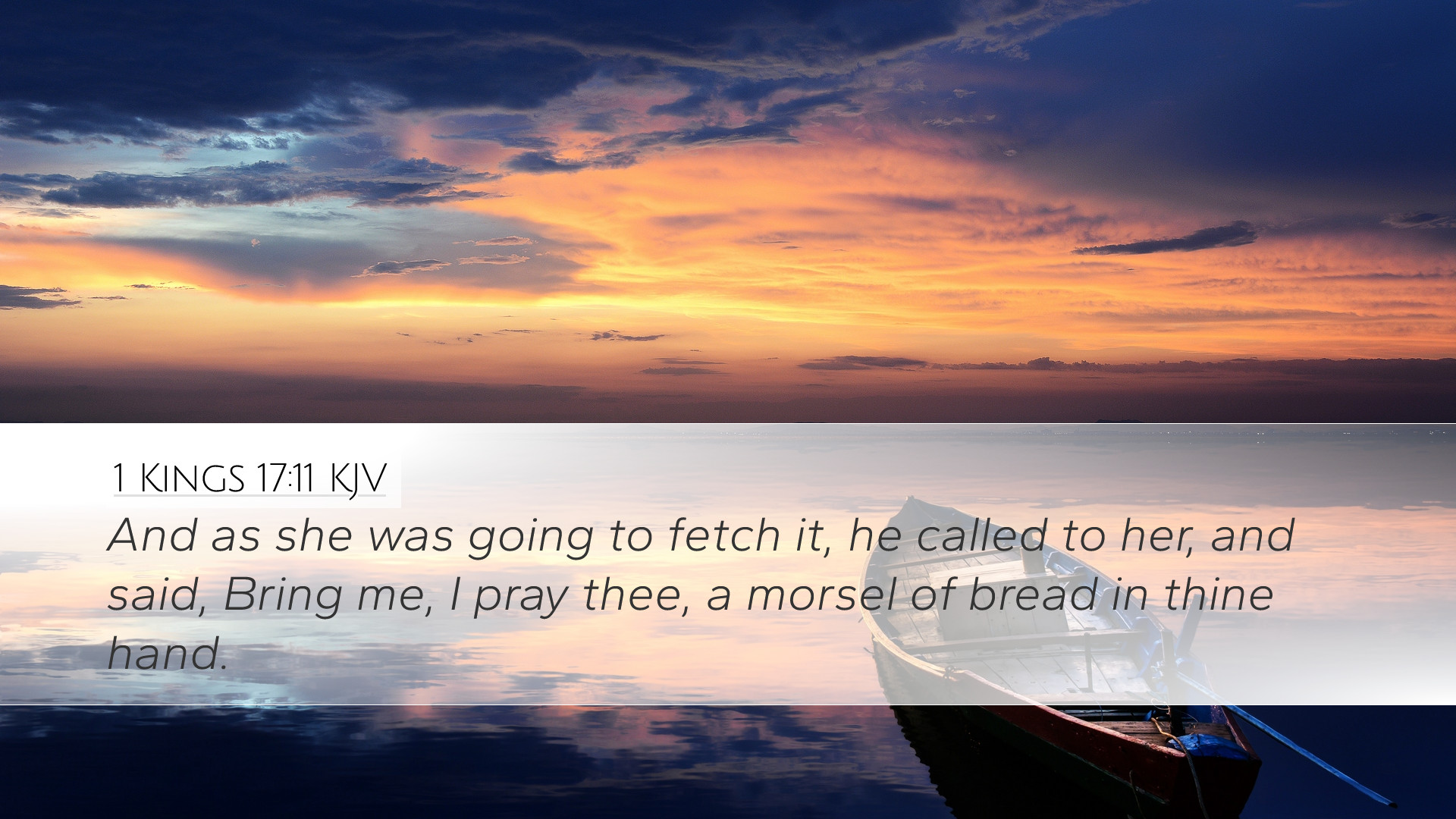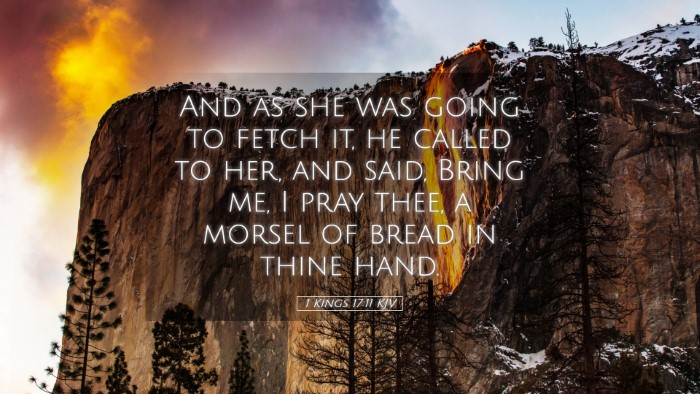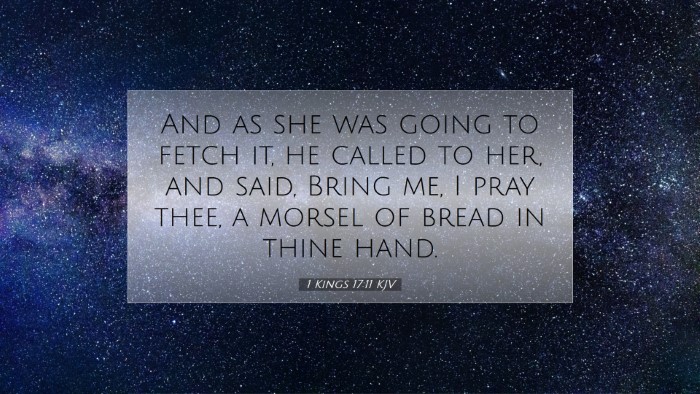Commentary on 1 Kings 17:11
Verse Overview: 1 Kings 17:11 narrates a poignant moment in the life of the prophet Elijah, where he experiences the provision of God while in a time of drought and famine. This verse states: "And as she was going to fetch it, he called to her, and said, Bring me, I pray thee, a morsel of bread in thine hand."
Contextual Setting
The backdrop of this narrative is critical to understanding its implications. The land of Israel is under severe drought due to Elijah's proclamation of divine judgment. The previous verses reveal that God instructed Elijah to reside by the Cherith brook, where ravens brought him food. When the brook dried up, God directed him to Zarephath, indicating a shift from survival to a divine providence that unfolds through the widow.
Theological Insights
This verse encapsulates several theological themes:
- The Nature of Faith: Elijah's request to the widow challenges her faith amidst her dire circumstance. It reflects on the idea that true faith may require us to give even when it seems impossible.
- God's Provision: The encounter underlines the principle that God provides in unexpected ways and through unexpected people. This demonstrates His sovereignty and the abundant provision which often flows through acts of obedience.
- Community in Need: The passage raises questions about communal responsibility and God's plan to use individuals to meet the needs of one another.
Exegesis and Commentary
Matthew Henry's Commentary
Matthew Henry highlights that Elijah's request was not merely for sustenance but was a test of faith for the widow. He points out that in her reluctance and bitterness, she reveals the depths of despair that can accompany human need. Henry emphasizes that Elijah’s bold assertion of God's provision is a call to trust, urging readers to recognize that spiritual blessings often accompany physical needs.
Albert Barnes' Notes
Albert Barnes elaborates on the cultural significance of the widow's response. In her words, "as the Lord thy God liveth," there is an implicit recognition of divine authority and a binding understanding of the gravity of the situation. Barnes insists that this moment is pivotal, illustrating that God uses those who are marginalized or in need to showcase His power and goodness. He believes that the widow is both a recipient and a vessel of blessing.
Adam Clarke's Commentary
Adam Clarke delves into the psychological aspects of the widow’s predicament. He notes her plight and identifies that she is at the brink of despair, resorting to gathering sticks for her last meal. Clarke encourages a reading that identifies the hope present in her response. He suggests that this encounter symbolizes a turning point not only in her life but serves as a powerful testimony of God's providential care in a bleak landscape.
The Widow's Perspective
Examining the widow's stance provides a profound insight into human vulnerability. Her initial query reflects the desperation of her situation. In this moment, she exemplifies the plight of many believers who grapple with faith in the midst of scarcity. Her hesitance can be viewed as a universal response to divine requests under dire circumstances.
Application for Today’s Believers
The implications of 1 Kings 17:11 resonate with contemporary believers struggling with faith and provision. This narrative challenges the church to embrace a faith that believes God's provision can come through acts of generosity, even when one feels they have little to offer. It encourages pastors and congregations to remind each other that God often meets needs in extraordinary ways, urging a collective reliance on His sustaining grace.
Conclusion
In summary, 1 Kings 17:11 serves as a powerful reminder of the interplay between faith, need, and divine providence. The insights drawn from Matthews Henry, Albert Barnes, and Adam Clarke enrich our understanding of the text, highlighting theological depth suitable for study and application by pastors, students, and theologians. In a world that often mirrors the widow's despair, this verse invites believers into a profound trust in the God who provides.


